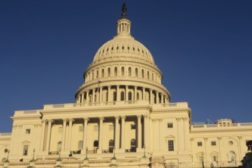Home » Keywords: » rules
Items Tagged with 'rules'
ARTICLES
Sunstein critics happy to see him go
Regulatory Czar “fixed a problem that didn’t exist”
August 15, 2012
Become a Leader in Safety Culture
Build your knowledge with ISHN, covering key safety, health and industrial hygiene news, products, and trends.
JOIN TODAYCopyright ©2024. All Rights Reserved BNP Media.
Design, CMS, Hosting & Web Development :: ePublishing




